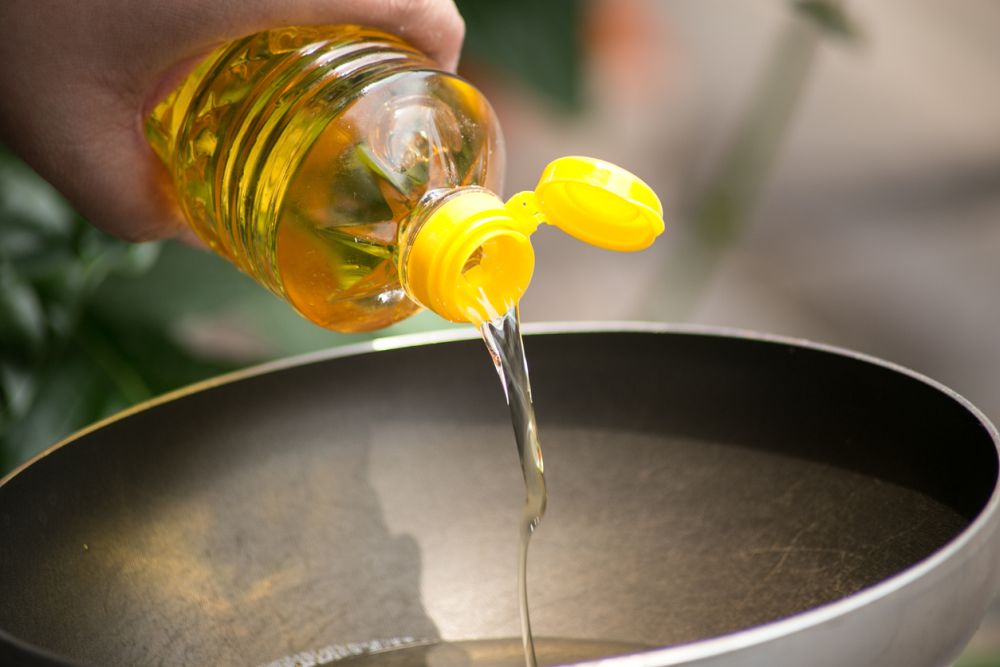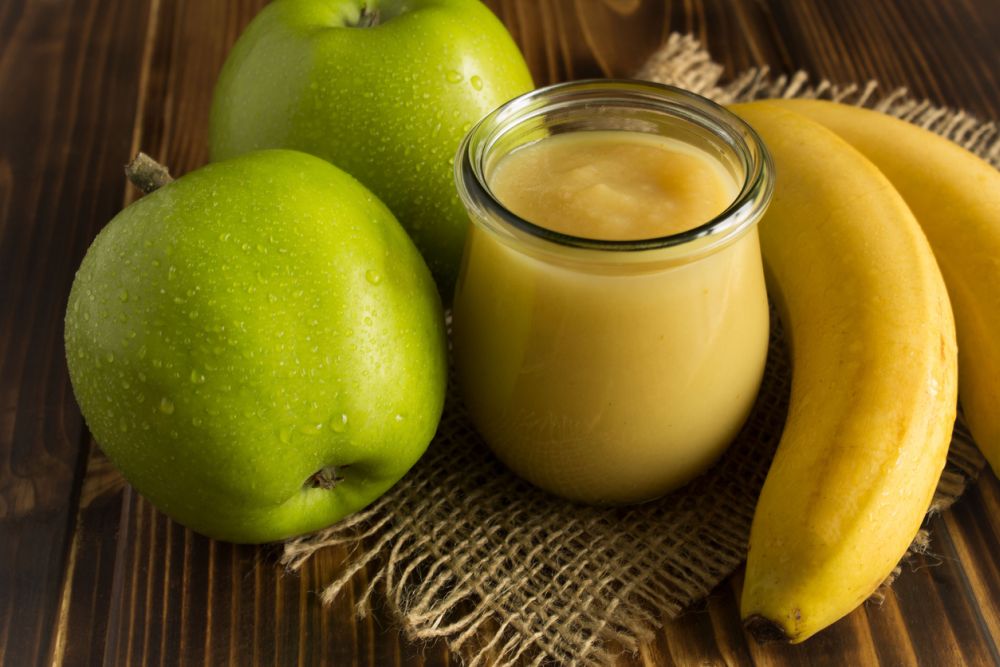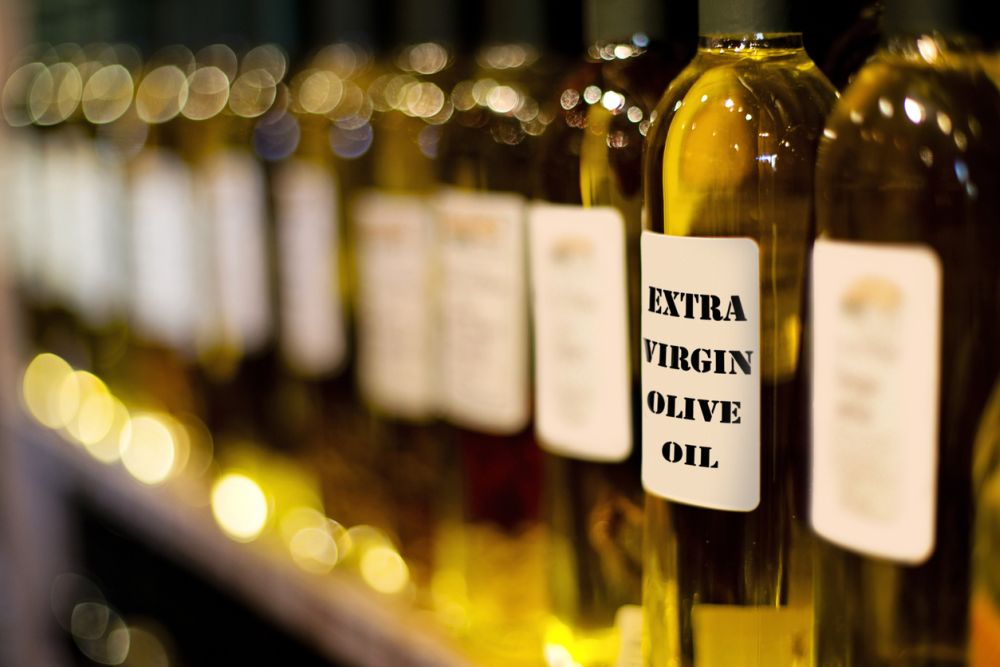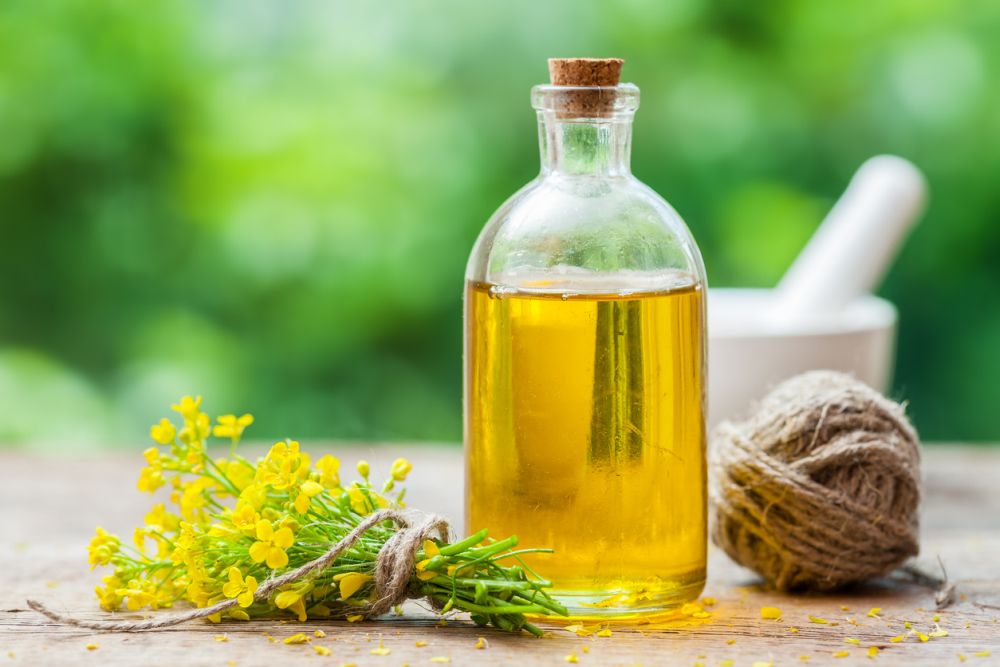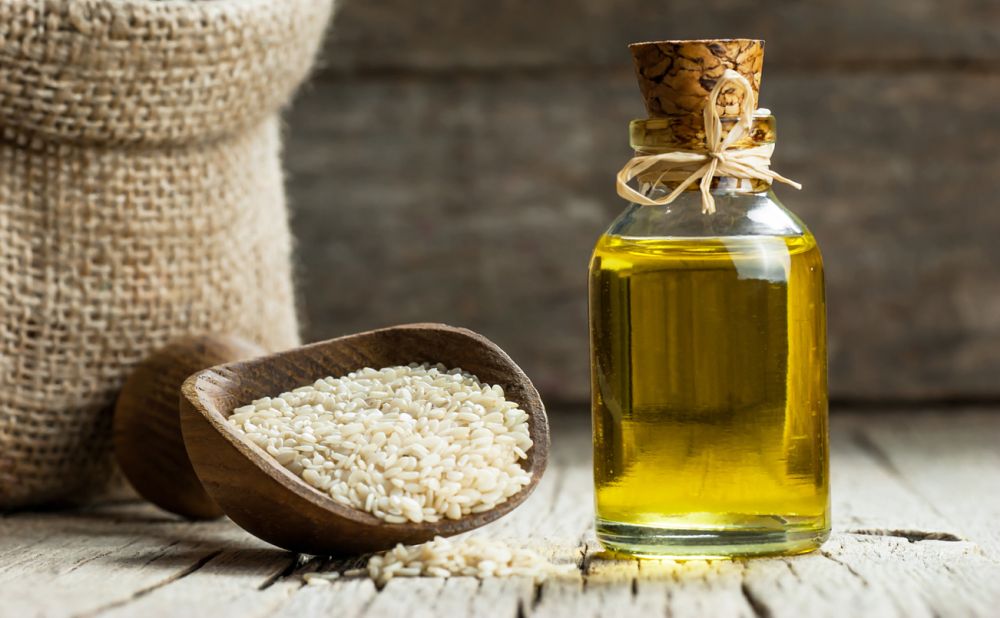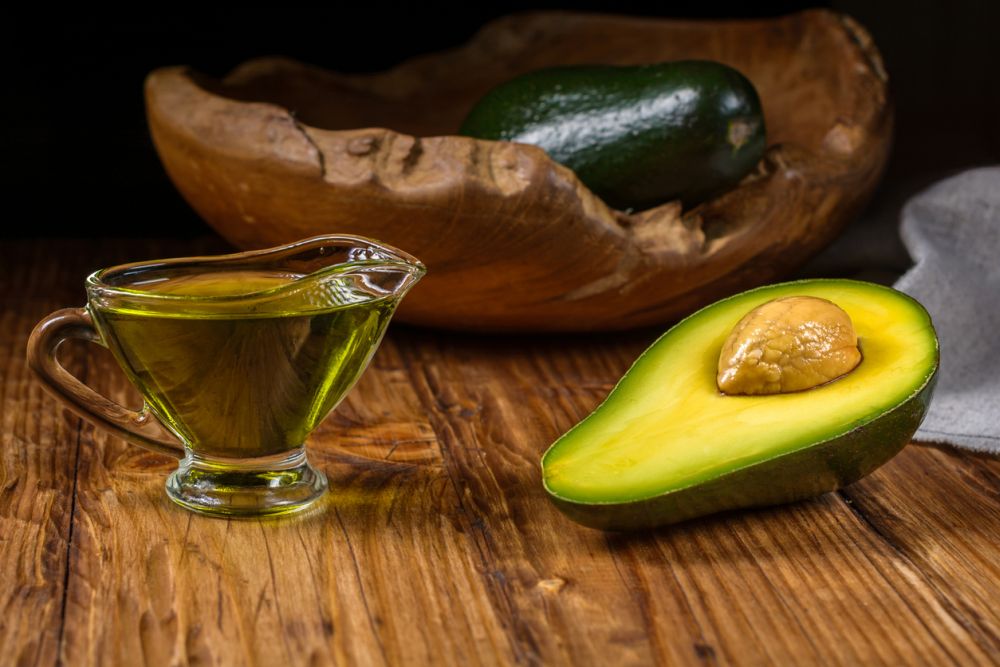8 Best Vegetable Oil Substitute Ideas for Cooking and Baking
If you’re looking for a vegetable oil substitute for cooking and baking because it’s healthier or you simply ran out of this ingredient, read on.
Vegetable oil is indispensable for cooking and baking. However, it has been shown that frying with vegetable oils may have adverse effects on your health. In this case, you might be interested in a healthier substitute for vegetable oil.
This article describes the best substitutes for vegetable oil, together with a short description and our recommendation for how to use it.
Table of Contents
Before diving into the section on vegetable oil substitutes, let’s find out more about the oil smoke point and why it matters.
The Vegetable Oil Smoke Point
Some vegetable oil substitutes are better than others in cooking and baking, thanks to the smoke point. So it’s crucial to understand the amount of heat that vegetable oil withstands (oil smoke point) to choose a suitable replacement.
What’s the oil smoke point?
The oil smoke point isthe maximum temperature at which the oil heats before it starts to smoke, burn, or break down.
Refined oils have a high smoke point, while virgin or unrefined oils have low smoke points.
Why does the smoke point matter?
One reason why the smoke point matters is that the higher it is, the more cooking methods you can use.
For instance, regular, store-bought vegetable oil has a high smoke point of 400 – 450 degrees F (205 – 230 degrees C), so you can use it to deep fry, grill, pan-fry, bake, and marinade.
Meanwhile, extra virgin olive oil has a low smoke point of 350 degrees F (177 degrees C), making it best suited for uncooked food or light-fry cooking methods.
Another reason why the smoke point matters is the taste. Food may develop a bitter taste when the oil burns. What’s worse, when oil passes its smoke point, it oxidizes and releases toxins known as free radicals, which cause illness and aging. So it’s essential to not use cooking oil beyond its smoking point.
Taking into account these two reasons, it’s crucial to use a vegetable oil substitute with a similar smoke point.
In the next section, discover the alternatives to vegetable oil in cooking and baking.
The Best Vegetable Oil Substitute: 8 Healthier Alternatives
This section reviews the healthiest substitutes for vegetable oil: avocado oil, sesame oil, canola oil, extra virgin olive oil, grapeseed oil, ghee, fruit or vegetable puree, and dairy.
Let’s start with avocado oil.
1. Refined Avocado Oil
Refined avocado oil is a healthy vegetable oil substitute with plenty of health benefits. It’s high in monounsaturated fats, which are the good fats your body needs.
This oil type has the highest smoke point on this list of 500 degrees F (260 degrees C). So it’s ideal for all types of cooking, including deep-frying, grilling, baking, marinades, and everything in between.
Refined avocado oil has a mild and subtle flavor that won’t affect the taste of your food, so you don’t have to worry about adapting it.
On the downside, it can be challenging to find pure refined avocado oil since it’s often mixed with other oil types.
When replacing vegetable oil with avocado oil, apply the 1:1 ratio.
You can buy refined avocado oil from Amazon.
In the next section, check out sesame oil.
2. Untoasted Sesame Oil
Untoasted sesame oil is a heart-healthy vegetable oil substitute with numerous beneficial effects. It comes packed with unsaturated fatty acids, natural antioxidants, vitamins, and minerals essential for your body’s health.
Sesame oil has a medium-high smoke point of 410 degrees F (210 degrees C), so you can use it for general cooking, shallow-frying, and salad dressings.
Untoasted sesame oil has a light color and neutral taste with a slight nutty flavor you won’t probably notice in your dishes. As such, you don’t have to adjust the other ingredients to accommodate the oil’s taste.
When replacing vegetable oil with untoasted sesame oil, apply the 1:1 ratio.
You can buy sesame oil from Amazon.
In the next section, check out canola oil.
3. Canola Oil
Also known as rapeseed oil, canola oil is a fantastic vegetable oil substitute with major health benefits, although it’s not as nutritious as other plant-based oils on this list.
Canola oil has a neutral taste, so it won’t affect the flavor of your cooked or baked foods. Plus, its smoking point is 468 degrees F (242 degrees C), making it ideal for deep-frying, stir-frying, and sautéing.
When replacing vegetable oil with canola oil, stick to the 1:1 ratio.
You can buy canola oil from Amazon.
In the next section, check out extra-virgin olive oil.
4. Extra-Virgin Olive Oil
Extra-virgin olive oil is the healthiest vegetable oil substitute on this list with an abundance of positive effects, including a high-monounsaturated fat composition and antioxidant properties that do wonders for your heart and entire body.
The extra-virgin kind has the highest quality out of all olive oil types since it’s cold-pressed, which means that the olive oil extraction process doesn’t reach harmful temperatures.
Extra-virgin olive oil hasa low smoke point of 350 degrees F (177 degrees C), so it’s best used for sautéing, salad dressings, and marinades. As for the taste, this oil type is more or less bitter and peppery, depending on the brand. As such, it’s necessary to adjust the rest of your dish’s ingredients accordingly.
Remember that you shouldn’t use extra-virgin olive oil in baking or cooking that exceeds the smoking point, or it will alter your dish. Refined olive oil is better in that case since its smoking point is 465 degrees F (240 degrees C).
When replacing vegetable oil with extra-virgin olive oil, use the 1:1 ratio.
You can buy extra-virgin olive oil from Amazon.
In the next section, check out grapeseed oil.
5. Grapeseed Oil
Grapeseed oil is a great vegetable oil substitute since it’s one of the oils used to make a blend of store-bought vegetable oil. It comes from the grape seed as a by-product of winemaking.
A by-product of winemaking, grapeseed oil is a rich source of vitamin E, phenolic antioxidants, and omega-6 polyunsaturated fats, which encourage heart health.
Like canola oil, grapeseed oil is flavorless, so it doesn’t affect the flavor or aroma of foods. It has a light green color and a smoke point of 420 degrees F (215 degrees C).
You can buy grapeseed oil from Amazon.
When replacing vegetable oil with grapeseed oil, stick to the 1:1 ratio.
In the next section, check out ghee.
6. Ghee
Ghee (clarified butter) is made by heating butter to separate fat (ghee) from the milk solids. It’s an excellent vegetable oil substitute for people allergic to casein, milk sugar, and lactose, which break down during production. And it has many health benefits.
Ghee is a popular cooking oil in Indian cuisine, and its high smoke point of 485 degrees F (252 degrees C) allows you to deep-fry, pan-fry, and sauté as you desire. It has a nutty and buttery taste and will change the taste of most foods prepared using it.
When replacing vegetable oil with ghee, stick to the 1:1 ratio. But use it sparingly because it contains 50% saturated fats, which may increase your risk of heart disease when used in large quantities.
You can buy ghee from Amazon.
In the next section, check out fruit or vegetable purée.
7. Fruit or Vegetable Purée
Fruit purée works best as a vegetable oil substitute in baking since it adds moisture and cuts down on calories. You can use applesauce, mashed bananas, puréed sweet potatoes, beets, or even mashed pumpkin.
Mashed fruits and vegetables have different effects on your baked goods, depending on the types used. For instance, fruit purees add a natural sweetness to the pastries, while puréed bananas leave your baked treats with a banana flavor. Conversely, mashed beets change the color of the dish.
When replacing vegetable oil with fruit purée, apply the 2:1 ratio. So use 1/2 cup of fruit purée for every cup of vegetable oil.
You may also need to adjust the other ingredients of your recipe, depending on the purée type. For example, if you use applesauce, reduce the amount of sugar required to counteract the sweetness.
In the next section, check out dairy products.
8. Dairy
Dairy products like Greek yogurt, buttermilk, sour cream, butter, and mayonnaise are ideal vegetable oil substitutes.
The shocker in this list is mayonnaise since works magic in baking. Mayo retains flavors, and no one will tell the difference.
Yogurt and buttermilk may make your baking foods tangy, so use them in moderation.
In the next section, you can learn more about vegetable oil and how to replace it in cooking and baking.
FAQ
This section gives you simple answers to common questions about vegetable oil.
What is vegetable oil?
Vegetable oil is oil extracted from any part of a plant – seed, grain, nut, or fruit. Yet the term more often means a blend of vegetable-based oils, such as canola oil, sunflower oil, soybean oil, etc.
Is vegetable oil healthy?
Yes, some vegetable oils are healthy. For example, extra-virgin olive oil has good fats that keep the body healthy.
Which are the vegetable oils?
Vegetable oils include plant-based oils like corn oil, sunflower oil, canola oil, olive oil, avocado oil, peanut oil, or sesame oil. However, vegetable oil can also mean a mixture of many plant-based oils such as sunflower, canola, soybean, and corn oil.
Which is the healthiest vegetable oil?
The healthiest vegetable oil is extra-virgin olive oil because it has a high concentration of monosaturated fatty acids and plenty of antioxidants. It’s not overprocessed or refined.
What is the healthiest oil for frying?
The healthiest oil for frying is avocado oil. You can use it for pan-frying and deep-frying.
Can I use olive oil instead of vegetable oil?
Yes, you can use olive oil instead of vegetable oil. But the olive oil type depends on the cooking technique. For instance, you should use extra-virgin olive oil in salad dressing and sautéing due to its low smoking point, and refined olive oil in frying due to its high smoking point.
Can I substitute canola oil for vegetable oil?
Yes, you can substitute canola oil for vegetable oil in stir-frying, pan-frying, and sautéing. But you shouldn’t use vegetable oil in deep-frying since its smoking point isn’t high enough.
What can I substitute for oil in baking?
In baking, you can substitute oil with fruit or vegetable purées (apple, banana, pear, sweet potato, beet, etc.), dairy products (yogurt, buttermilk, mayonnaise, sour cream, butter), and cornstarch paste. For example, butter works best for baking cookies.
Can I substitute butter for vegetable oil?
Yes, you can replace butter with vegetable oil for cooking and baking in a 1:1 ratio.
What can I substitute for oil in brownies?
You can substitute oil with avocado oil since it doesn’t alter the brownie flavor. Butter is also a great option, adding a creamy and buttery flavor. Lastly, you can use coconut oil if you don’t mind the slight coconut taste.
What can I use instead of vegetable oil in cake mix?
When using a cake mix, you can replace vegetable oil with canola oil, avocado oil, or sunflower oil in a 1:1 ratio. You can also use melted butter, sour cream, unsweetened applesauce, yogurt, buttermilk, or mayonnaise.
Can you use olive oil to bake a cake?
Yes, you can use refined olive oil to bake a cake, thanks to the high smoking point of this olive oil type. Besides, it’s odorless and tasteless.
Which oil is best for cake baking?
Canola oil is the best oil for baking since it’s healthy. It also has a neutral taste, which helps bring out the flavors of other ingredients.
Can I substitute coconut oil for vegetable oil?
Yes, you can use coconut oil as an alternative to vegetable oil, particularly for baking cakes, brownies, and muffins. Just remember that it will add a slight coconut flavor to your baked goods.
The next and final section summarizes the entire article about substituting for vegetable oil.
Final Thoughts
Selecting the best vegetable oil substitute depends on your cooking or baking style. In summary, consider the following:
- Frying: avocado oil, peanut oil, grapeseed oil, canola oil.
- Sautéing: canola oil, avocado oil, butter, olive oil.
- Salad dressing: extra-virgin olive oil.
- Baking: applesauce, fruit and vegetable purees, butter, coconut, mayonnaise, Greek yogurt, buttermilk.
What’s your favorite vegetable oil substitute? Share your tips in the section below!
